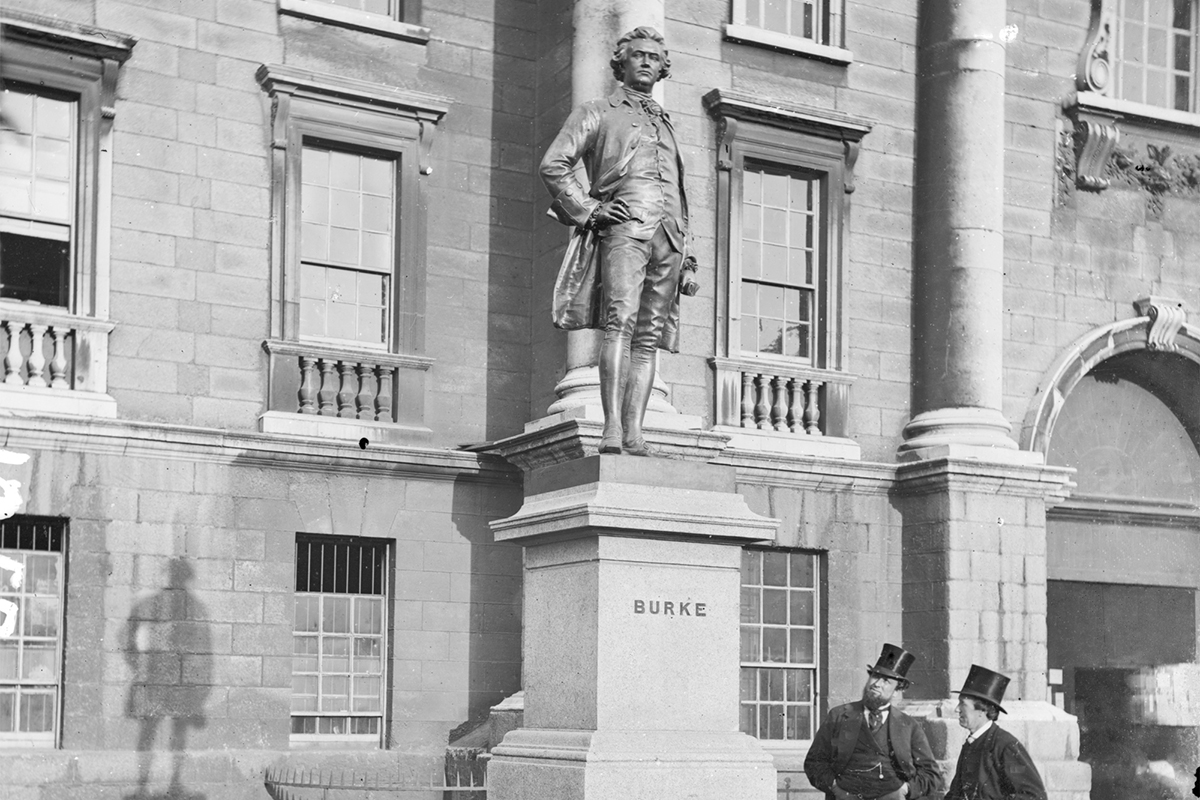Education
Conservatives in Philosophy: A Brief Rejoinder to Tristan Rogers
If the whole academe is meant to pursue truth, then it can be fine for different traditions to develop that are not perfect ideological representatives of society at large.

In April, Tristan Rogers wrote an article for Quillette about “The Dearth of Conservatives in Academic Philosophy,” presenting data exploring the titular phenomenon and arguing that philosophers should seek out conservatives. I do not doubt that the proportion of politically conservative academic philosophers is lower than the proportion of the general population, but we should not therefore conclude that the situation is as dire as Rogers presents.
The Ideological Landscape of Philosophy
There is not much data concerning the state of conservatism in philosophy. The evidence Rogers does have paints a bleak picture for conservatives in the field at first glance. However, it deserves closer scrutiny.
A PhilPapers survey from 2009 asked one question about politics: “Politics: communitarianism, egalitarianism, or libertarianism?” Rogers finds it notable that “conservatism” is not listed as an option, but this is not actually noteworthy. The three options pick out approaches to political philosophy and motivating values, not political ideology. Egalitarians are concerned with equality. Libertarians are concerned with liberty. Communitarians stress the value of the community to human flourishing. There are conservative communitarians, including Phillip Blond and Patrick J. Deneen, who might be called “social conservatives.” Moreover, conservatives who are less concerned with religion might have answered that they “lean towards” libertarianism.
Of the surveyed philosophers, 33 percent answered egalitarianism, 16.3 percent answered communitarianism, and 13.4 percent answered libertarianism (and 37.3 percent answered “other”). If the concern of Rogers is the representation of the political views, then it is important to confine the analysis to philosophers who specialize in Value Theory (political philosophy, ethics, etc.) and related sections of History of Philosophy. Rogers should have no problem if it turns out that zero philosophers of physics are political conservatives. Nearly 50 percent of specialists in “Social and Political Philosophy” surveyed support egalitarianism, but the correlation is not statistically significant (p = 0.112). Since the American Founding Fathers were interested in classical philosophy, it seems plausible that interest in classical philosophy might correlate with conservatism. Indeed, the “Ancient Greek Philosophy” specialty has a very slight but significant correlation for not answering egalitarianism (r = 0.081, p = 0.026). Interestingly, 31.4 percent of specialists in “Medieval and Renaissance Philosophy” supported libertarianism (r = 0.076, p = 0.037). It was difficult to find other significant correlations between politics and specialty. With a closer analysis of the data, a clear picture of conservatism in academic philosophy cannot be made from this survey.
A further obstacle to understanding the ideological landscape of academic philosophy is the lack of a clear definition of who should be considered a conservative. While he does not offer a clear definition, it seems that by “conservative” Rogers means something like “someone who usually votes Republican.” Philosophers, however, might not associate that characteristic with conservatism per se. The Stanford Encyclopedia of Philosophy article on conservatism states that philosophical commentators “treat [conservatism] as a standpoint that is sceptical of abstract reasoning in politics, and that appeals instead to living tradition, allowing for the possibility of limited political reform.” It is conceivable that philosophers who identify with the liberal tradition, including classical liberals, are individuals who usually vote Republican. Additionally, while a libertarian political philosopher and a Christian philosopher of religion may differ in their policy preferences, there is a case that both should still be considered “conservative” by Rogers.
With the limited data available, the map of philosophy’s ideological landscape is practically terra incognita. Only more data can make the picture clear, and warning calls should not be made in its absence.
The Meta-Problem
Furthermore, worrying about conservatism within philosophy departments reinforces the isolation of different academic fields by suggesting a field has to be self-sufficient. The norms of any discipline emerge, at least partly, from the psychological traits of the people in the field. As Rogers puts it, openness to new ideas is “the philosophical character trait par excellence” and correlates with political liberalism. Activism intended to include more of a certain political ideology in any field, however, changes the psychological make-up of the field and might adversely affect its norms.
It is better for a discipline to recognize that it has created a specific dynamic and then go to different intellectual communities to engage their ideas. Many philosophers already engage in this inter-disciplinarity. Daniel Dennett, a philosopher at Tufts University, has drawn on biology throughout his career. During a 2017 interview, Georgetown University philosopher Jason Brennan stated that his work on democratic theory was partly inspired by reading the social science literature about how democracies work in practice, rather than the assumptions of philosophers.

If the whole academe is meant to pursue truth, then it can be fine for different traditions to develop that are not perfect ideological representatives of society at large. Agreement on certain foundational assumptions by one group can allow it to make breakthroughs by seeing what should follow from those assumptions, rather than spending time debating what those foundational assumptions should be. However, to avoid intellectual bubbles, this group should not totally isolate itself from the rest of the academe. Some degree of interaction is needed as a check against following mistaken paths. This process of dividing into different groups to work on a problem and then comparing results has been observed throughout the history of science, but it could be applied to the wider intellectual community. Brennan’s work on democratic theory is a perfect example of this process in action within philosophy, rather than an indication of a dire dearth of “social science thinkers” in academic philosophy. If the concern is the engagement of conservatism by academic philosophers, it can be addressed without worrying about conservatism in academic philosophy.
Conclusion
While Rogers is probably right that academic philosophers should engage with conservatives more than they do, there is no great evidence to support the idea that the current state of conservatism in academic in philosophy is dire. If one in six philosophers are libertarians, then conservative economic positions have representation comparable to conservative representation in some of the most ideologically balanced academic disciplines. Belief in God has even better representation within philosophy. And insistence that philosophers only need to talk with other philosophers is both an insult to other disciplines and ignores what some of the biggest names in academic philosophy actually do.






